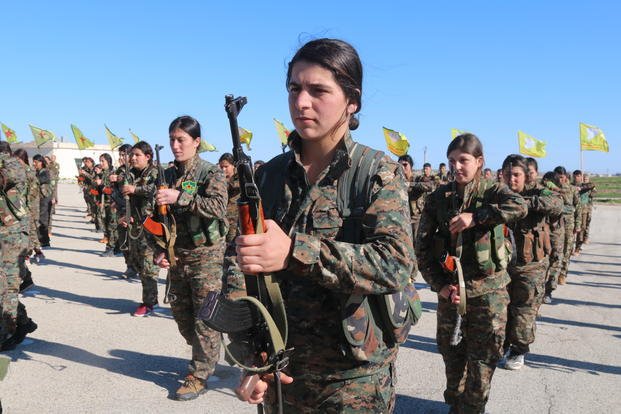Author Gayle Tzemach Lemmon went to the front lines of the war against ISIS to chronicle all-female Kurdish units as they fought to rid Syria of the group's oppressive rule. Her new book "The Daughters of Kobani: A Story of Rebellion, Courage and Justice" brings this compelling tale to American readers.
How did female troops come to take such a critical leadership role in a part of the world notorious for its oppression of women? What motivated these fighters to take such an active role when women have historically been left out of the battle?
Lemmon previously published "Ashley's War," which followed American women in a pilot program that put them into combat roles in Afghanistan. Her connections from that book put her onto the story she tells in "The Daughters of Kobani," a tale that's sure to shock anyone who believes that combat is exclusively a man's job.
Related: A Decade Later, this Afghanistan Special Operations Story is Finally Coming to the Screen
"Ashley's War" will soon be a movie directed by Lesli Linka Glatter of "Homeland" fame. "The Daughters of Kobani" has already been optioned for a television series to be produced by Hillary and Chelsea Clinton's HiddenLight Productions.
Related: Hillary Clinton Will Produce a Series About Female Kurdish Militia
There are a lot of compelling stories in "The Daughters of Kobani," so it's worth reading now and not waiting the years it will likely take to bring them to the screen.
Lemmon took the time for an in-depth conversation about the book and what she's learned from covering women warriors over the last decade.
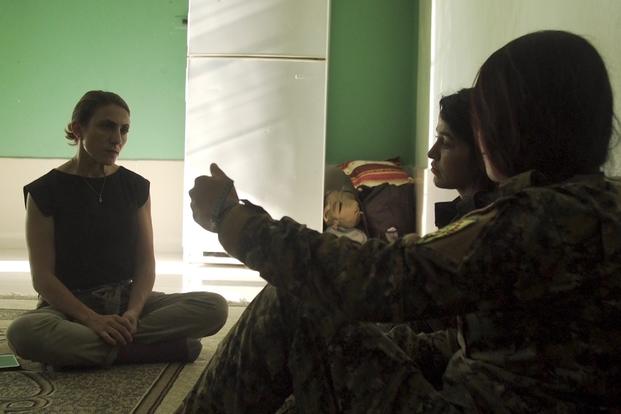
Military.com: The Middle East is a place where women have been oppressed for so many centuries. How is it possible that they've managed to take this leadership role in this conflict?
Gayle Tzemach Lemmon: I truly believe that every great story starts with a question you cannot answer. I couldn't figure out how in the world this most far-reaching experiment in women's equality was taking place on the ashes of the fight against the Islamic State. I wanted to know who these people are. What drove them? How did they come to be America's partner in the effort to defeat the Islamic State?
Military.com: There also seems to be a core question about the history of U.S. policy in the Middle East going back to World War II. Who's a Marxist? Who isn't? Are the people who call themselves Marxist actually Marxists? Are they people who are innately on our side? Because, all of a sudden, the U.S. found itself allied with a group of people who had spent decades being oppressed by governments we supported.
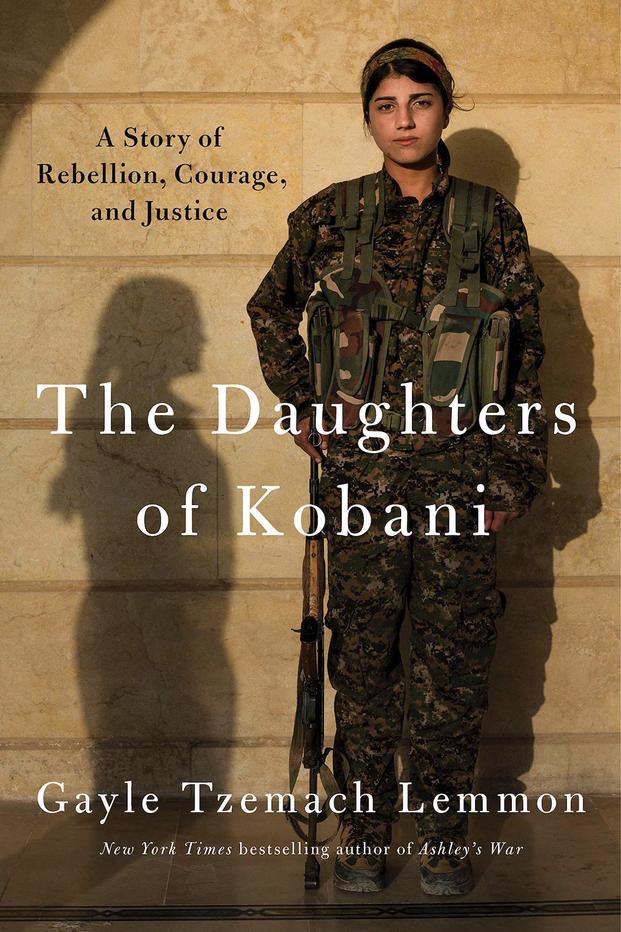
Gayle Tzemach Lemmon: It really is a fascinating kind of twist in terms of understanding why the Americans came to partner with this force that had women's equality and women's emancipation right at the center of its ideology. The book really wrestled with how that came to be. I tried to bring readers into that world of these women who truly were motivated by the idea of bringing equality to their corner of the world and well beyond.
The American forces really had such enormous respect for this fighting force. Sometimes, they would talk to me about the warrior ethos and how they thought of it when they spent time with these women who never complained. They were never looking for luxuries. They were all about taking the objective and gaining ground. That was the thing that stuck with me in all the interviews I did with folks from the U.S. side who lived and breathed the ISIS fight for a half decade.
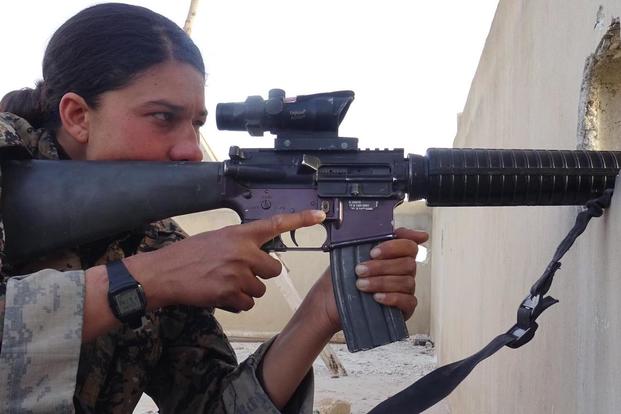
Military.com: Do you think some of the Americans you were talking to would have a different response to the situation if American women had been brought into the same combat role?
Gayle Tzemach Lemmon: I will really leave that to the reader. What really grabbed me at the beginning was that I came into this story from one of the American women who was part of "Ashley's War." She called me and said, "You have to come to Syria." I said no because I knew that, to do justice to the story, you really had to roll up your sleeves and live it.
There is a quote from her at the start of the book saying that she was almost jealous of these women. On the other hand, as "Ashley's War" showed, there was no question that men who served alongside those soldiers had enormous respect for them and, actually, were the reason why they were able to keep doing what they did, because they fought for them too.
Military.com: How does this story fit into the U.S. campaign against ISIS?
Gayle Tzemach Lemmon: This is also American story about the people inside the military community whose lives were consumed by the fight against the Islamic State. They are very much a living, breathing part of this story. I work so hard to do justice to the complexity of their emotions, because all of these people and teams were on their 13, 14, 15, 16th deployments by the time you're in 2014 and 2015.
They believed they were possibly going to bequeath these wars to their children, and they wanted to finish them. That was part of why they were so committed to working with this force, because they saw that these women had the will to fight.
Military.com: Some of the U.S. commanders on the ground in this conflict are a decade away from being leadership at the Pentagon and becoming our next generation of core leadership in the military. Do you think those experiences they had during this conflict are going to change policy 10 to 15 years down the road for American forces?
Gayle Tzemach Lemmon: That's an interesting question. There is no doubt that this women-led partner force was consequential. I hope that readers who come into the story really feel like they have a flashlight into why that was for those U.S. forces whose story is part of "The Daughters of Kobani."
The U.S. forces deeply believed that this partner had been loyal and had taken every objective they had asked. They would fight not just to the end of the fight but beyond that, if needed. That was the source of the enormous respect that the Americans had.
You'll see that in funny stories in the book. A U.S. service member who's newer to the region goes to put a hand out to a male fighter and says, "Nice to meet you" and the male turns to his female commanders like, "If you're looking for who's in charge, that's her."
The Americans also became initiated into this world of the daughters of Kobani and that really works to do justice to the complexity of that experience.
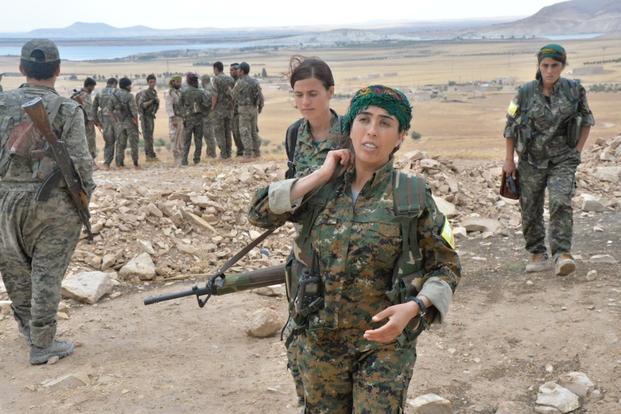
Military.com: You've now written two books about women participating in combat situations. Have you found that women have a different set of abilities when it comes to analyzing combat? If women are in leadership roles on the ground, does that bring different approaches to the fight?
Gayle Tzemach Lemmon: I don't think I would say that all women bring things that are different, but I will say that the women who are part of both stories would talk to me about the humanity amid the war.
Rojda was one of the commanders in "The Daughters of Kobani." She has been facing off against the Islamic State since before it was the Islamic State. They know these men, and they're deeply connected to them.
The warrior instinct, the warrior ethos, as the folks in the book called in from the American side called it, is the same as for male fighters. But I would say that their focus on women and what women experienced in this war at the hands of the Islamic State was different.
In "The Daughters of Kobani," they talk about how they want revenge for what ISIS has done to women in particular. The fight was very much a personal one for that reason. They still brought the detachment needed to be a warrior and to do the things in battle that they did but without losing their humanity.
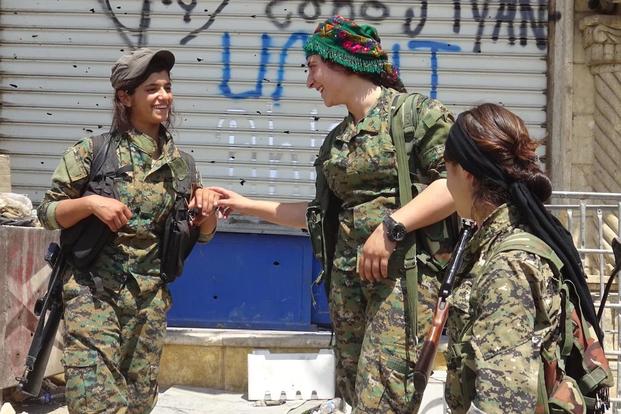
Military.com: You've now had two books optioned by Hollywood. "Ashley's War" is finally going to be a movie several years after you first published the book. "The Daughters of Kobani" has been optioned for a television series even before the book was published. What has dealing with the film and TV people been like for you?
Gayle Tzemach Lemmon: The experiences are pretty much the same. You have a responsibility to the people in your story to have as many people live their experience as possible. People trust you with their stories, and you have a responsibility to bring it to as many people as you can. That is what motivates me.
"Ashley's War" was set up at Fox 2000 with Reese Witherspoon producing, right before the book came out also in 2015. It's been six years. Now, we are very close to making the movie at Universal with Lesli Linka Glatter of "Homeland" as director.
It's incredibly exciting to see that people understand the power of what it would mean to have these stories on screen. For me, that is part of fulfilling my responsibilities to the people who trusted me. Because it's not an easy thing to sit down and tell your experience to someone who's going to chronicle it for people who will never meet you or live alongside you.
Military.com: I'm not sure we've ever seen a movie or a series that focuses on women in combat, and you've got two upcoming. For all its virtues, I wouldn't count "GI Jane" as an accurate representation of women in the military.
Gayle Tzemach Lemmon: It's true. We've never had an all-women ensemble war film, ever. That motivates everyone who is involved in this project. We want to do justice to the women who are part of this story and for all the girls and boys coming up to one day see this as normal.
Military.com: In "The Daughters of Kobani," you're telling the stories of people who've never been able to share their perspectives with the rest of the world. You're humanizing a group that's been both misunderstood and demonized in the West.
Gayle Tzemach Lemmon: Well, that means a lot to me. My father is from the region, and my grandfather is from Kirkuk. As I was writing, it was important to me that we got to spend time with the daughters of Kobani, right, and that readers could see themselves as right alongside them.
The thing that means the most to me is the folks who are in the book are calling me and laughing about different passages or talking about different things they're reading. It is strange to see yourself on a page, so just to hear them call and say, "Oh, you know, I forgot that you were listening when I said this" means a lot.
I talk about this in "The Daughters of Kobani." It is personal to me. There's a part in the prologue where I talked about my father saying something to me, like, "Do you really think men and women are equal?" I wanted to bring the complexity and the nuance, and the joy and the love and the friendship of these women alive to my readers.
Keep Up With the Best in Military Entertainment
Whether you're looking for news and entertainment, thinking of joining the military or keeping up with military life and benefits, Military.com has you covered. Subscribe to the Military.com newsletter to have military news, updates and resources delivered straight to your inbox.
